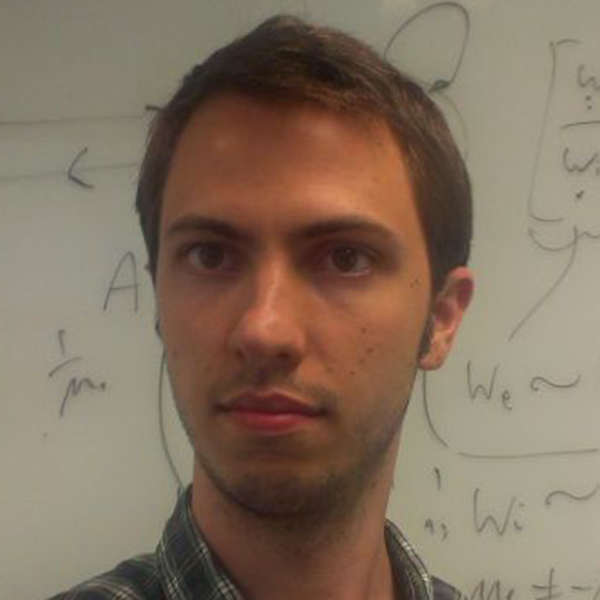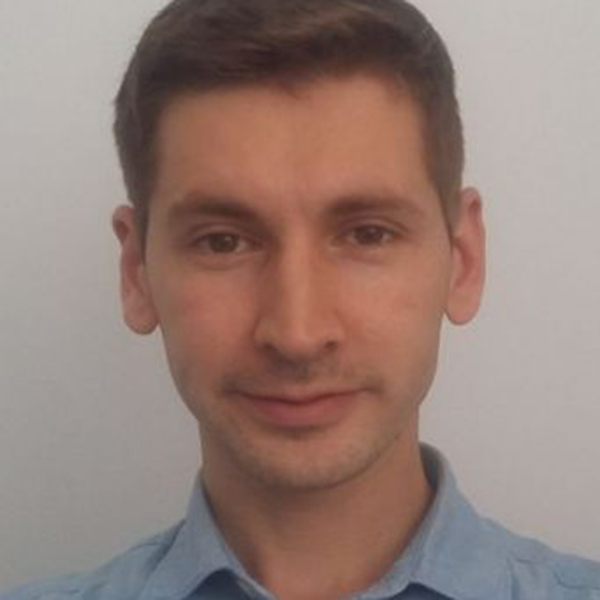
ARC Awards DECRAS to ACEMS Researchers
Both Jesper Ipsen and Alexandr “Sasha” Garbali were attracted to ACEMS from Germany and France respectively in 2015, where they took up positions at The University of Melbourne as post-doctoral research fellows funded by the Centre.
We are pleased to say their Australian research journeys will continue after the Australian Research Council granted both of them Discovery Early Career Researcher Awards (DECRAs) in 2020.
Jesper, supervised by ACEMS Chief Investigator Peter Forrester, has produced high impact research on Random Matrices, Random Fields, and their applications to large complex systems.
“ACEMS has provided a very open research environment, which has allowed me to work not only on topics directly within research themes set out by the Centre, but also pursue my own research ideas and directions. Some of which has led to the basis on which my DECRA is built,” says Jesper.
“Receiving a DECRA means that I’ll be able to continue my research in Melbourne.”
Jesper’s research contributions have been acknowledged by ACEMS with an Outstanding Achievement Recognition Award in 2018.
Sasha, supervised by ACEMS Chief Investigator Jan de Gier, has worked on problems of quantum integrable models and built his expertise in attacking novel problems in this growing field of mathematical physics. Some of his more recent work is detailed here.
“As an ACEMS fellow I had access to the resources and networks which facilitated establishing collaborations, receiving mentorship and conference participations. It contributed significantly to my development as a researcher and helped me to design my own career path for the coming years,” says Sasha.
We are extremely happy to be able to retain these outstanding early career researchers in Australia so that they can continue their world-class research and strengthen their international collaborations and research networks.
“The ACEMS network has provided me with connections to researchers from other Australian universities and from different mathematical sub-disciplines. I wouldn't have been able to establish this broad Australian network without the Centre, and I've definitely benefited from the diversity within the Centre, which has given me a broader perspective on the Australian mathematical community,” says Jesper.
Here is a look at their projects:

Dr Jesper Ipsen
Dr Jesper Ipsen (UniMelb): $411,000
Stability and Complexity: New insights from Random Matrix Theory
Complexity is a rule of nature: large ecosystems, the human brain, and turbulent fluids are merely a few examples of complex systems. This project aims to study and classify criteria of stability in large complex systems based on universal probabilistic models. This project expects to generate new important understanding of stability using cutting-edge techniques from random matrix theory. Expected outcomes of this project include development and expansion of an innovative mathematical framework and techniques which allow a unified and universal approach to the question of stability in large complex systems.

Dr Alexandr "Sasha" Garbali
Dr Alexandr "Sasha" Garbali (UniMelb): $342,346
Toroidal quantum groups, integrable models and applications
Modelling systems of quantum and classical mechanics usually relies on computationally expensive numerical methods. Such methods typically provide raw answers and give little insight. In contrast, a special class of modelling based on quantum integrability provides us with a variety of analytic tools thanks to connections with algebra, geometry and combinatorics. The project aims to study quantum integrability with the help of new exciting developments in toroidal quantum groups. The anticipated outcomes include constructions of new models, developing analytic methods and computer algebra packages. These results are expected to facilitate challenging computational problems in modelling of quantum and classical systems.
For a complete look at the ARC Discovery Early Career Researcher Awards, head to the ARC website page.